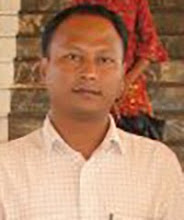Anguttara Nikaya
The Anguttara Nikaya (aṅguttaranikāya; "Gradual Collection") is a Buddhist scripture, the fourth of the five nikayas, or collections, in the Sutta Pitaka, which is one of the "three baskets" that comprise the Pali Tipitaka of Theravada Buddhism. This nikaya consists of several thousand discourses ascribed to the Buddha and his chief disciples arranged in eleven nipatas, or books, according to the number of dhamma items referenced in them.
A similar collection, apparently translated from an earlier version in some other Indian dialect, appears in the Chinese Buddhist canon. This is known as the Ekottara Agama (aka 'Ekottara-āgama-sūtra', or Zēngyī Ahánjīng (增一阿含經))।
Translations
- The Book of the Gradual Sayings, tr F. L. Woodward & E. M. Hare, 1932-6, 5 volumes, Pali Text Society, Lancaster
- A new translation by Bhikkhu Bodhi is expected around २००९
Selections
- 1st 3 nipatas tr E. R. J. Gooneratne, Ceylon, c1913
- 4th nipata tr A. D. Jayasundare, London, 1925
- anthology ed & tr Nyanaponika, Buddhist Publication Society, Kandy, Sri Lanka; revised, with additions & deletions, by Bodhi, as Numerical Discourses of the Buddha, Altamira Press, Oxford/New York/Lanham, Maryland/Walnut Creek, California, 1999
Divisions
The nipatas in this nikaya are:
- The Book of Ones
- The Book of Twos
- The Book of Threes
- The Book of Fours
- The Book of Fives
- The Book of Sixes
- The Book of Sevens
- The Book of Eights
- The Book of Nines
- The Book of Tens
- The Book of Elevens
Appreciation
Translator Bhikkhu Bodhi wrote: “In Anguttara Nikaya, persons are as a rule not reduced to mere collections of aggregates, elements and sense-bases, but are treated as real centers of living experience engaged in a heartfelt quest for happiness and freedom from suffering.”(from Intro to Samyutta Nikaya)








|